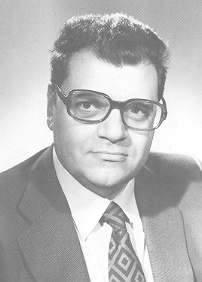This article has multiple issues. Please help improve it or discuss these issues on the talk page . (Learn how and when to remove these messages) |

Pietro Longo (born 29 October 1935) is an Italian politician. [1]
Longo was born in Rome. His mother, Rosetta Longo, from Campobasso, was a member of the Italian Socialist Party (Partito Socialista Italiano; PSI). Longo studied social sciences and was one of the founders of the Censis (Italian Census Institute).
On 20 October 1978, he became secretary of the Italian Democratic Socialist Party (Partito Socialista Democratico Italiano; PSDI). He was confirmed as secretary in the party's 18th congress, held in Rome in February 1980, and in the 19th, held in Milan in March 1982. Longo was also minister for Economic Balance in Bettino Craxi's first cabinet.
In 1984 he had to resign first from his government position, and later (1985) as secretary, after the Loggia P2 scandal, whose list of members had included him since 1981. [2] He was succeeded as PSDI secretary by Franco Nicolazzi. He failed to be elected to Parliament in the 1987 general election and lost judicial immunity. Longo thus underwent trial for the ICOMEC bribe scandal, being condemned in first (1989), second (1991) and third (1992) grade. The last condemnation caused him to be imprisoned in Rome's Rebibbia jail. In the meantime, Longo entered the PSI in 1989.
